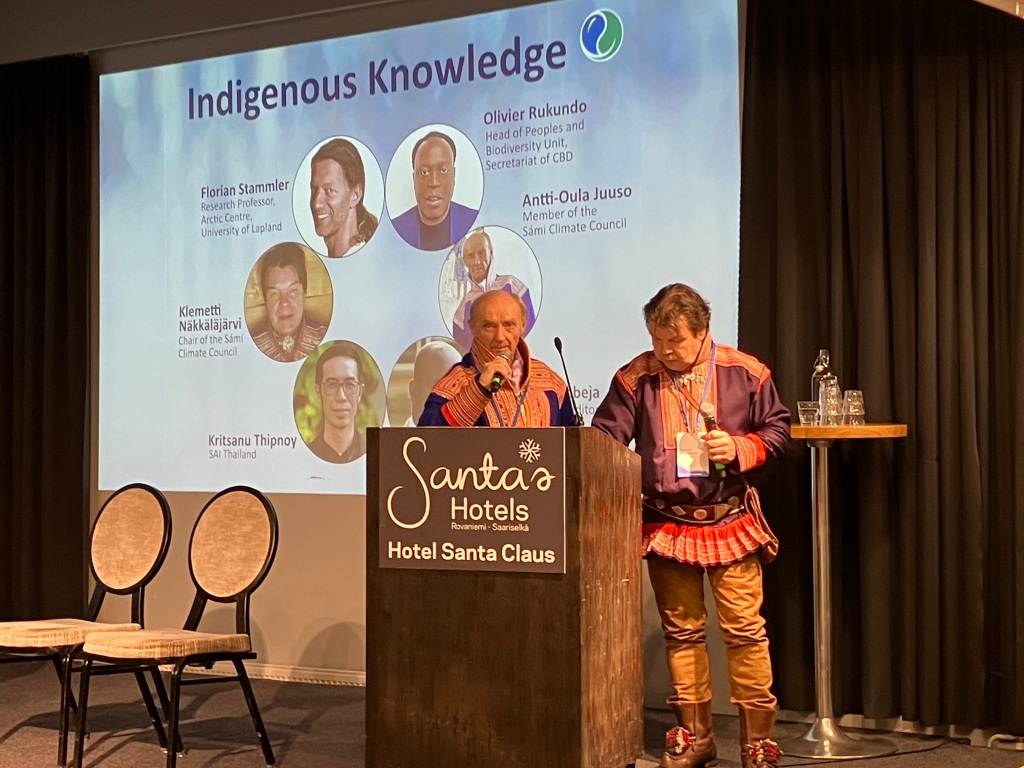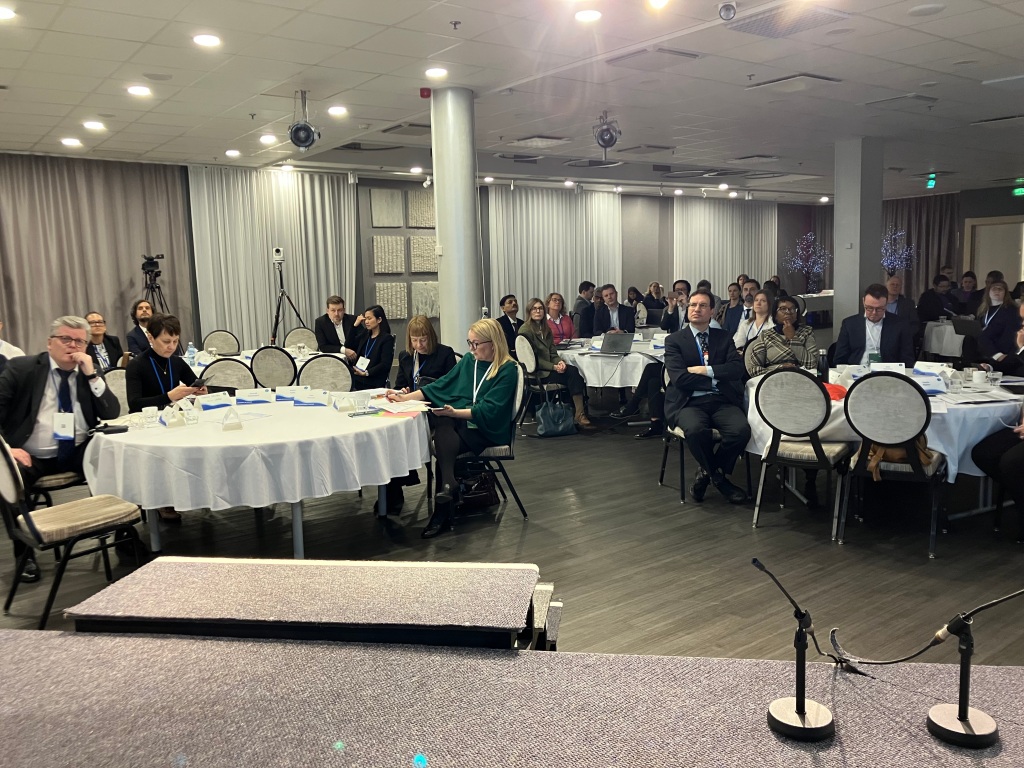Currently the International Organization of Supreme Audit Institutions (INTOSAI) has one of their worldwide working group meetings in Rovaniemi, the working group of environmental auditing (WGEA). At this meeting they have a specialised session on indigenous knowledge in auditing, to which they invited me as a keynote speaker. Not only was it hopefully a useful exercise to introduce the idea of indigenous knowledge, or indigenous ways of knowing as I would like to call it, to such an influential group of participants from all over the world. The message about the significance of indigenous ways of knowing for the practice of auditing actors with all sorts of activities in the Arctic was further strengthened by two distinguished Sámi speakers, Klemetti Näkkäläjärvi, and Antti-Oula Juuso, from the recently established Sámi Climate Council.

All three of us emphasized that indigenous ways of knowing are relational, inter-generational, context-sensitive, flexible, experience-based, subjective, embedded in real-life situations, and as such all empirically verified. In that respect there are advantages of these ways of knowing in comparison to what is often called scientific knowledge, which claims to be objective and basing on pure facts, designed in experiments and laboratories often far detached from the life of people on the land. So by incorporating indigenous ways of knowing in auditing practices – if that is possible at all – the benefits lie not only in recognising facts but also immediately their significance and interpretation in real life of real people on the land.
As an anthropologist I was impressed and pleasantly surprised how much interest and efforts auditors started dedicating to indigenous issues at their conference. The programme included impressive presentations on how auditing offices incorporate indigenous issues in their work. Most advanced seem to be the audit offices in Australia and New Zealand. In Australia for example, the Audit Office of New South Wales has appointed what they call a First Nations Performance Audit Team Leader. She, Carla Ware, traveled all the way personally to Rovaniemi to brief the auditing practitioners on indigenous issues in Australia. In New Zealand it was impressive how the audit office has already worked for decades to built trustful relationships with Maori indigenous people.

Interesting that many of participants in this meeting used the term “IPLC”, with which they mean Indigenous Peoples and Local Communities. This is an elegant way of avoiding difficult discussions on how to define indigeneity. For example, for Olivier Rukundo, the Head of Peoples and Biodiversity Unit of the Convention of Biological Diversity, there was no difference between indigenous and local ways of knowing, as both are considered essential for supporting biodiversity on our planet.
If national auditing offices all over the world take indigenous (and local!) ways of knowing seriously, I guess this is good news for our planet, and also maybe it could lead to some real-life applications of anthropological research results in practice where it matters.
